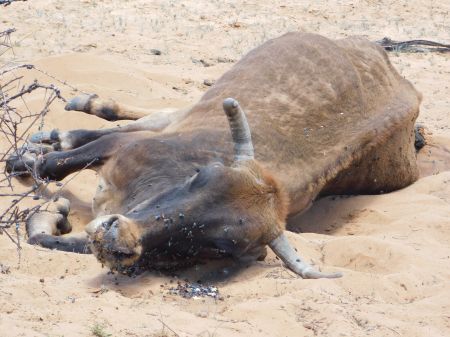Lahja Nashuuta
Farmers in Namibia’s northern regions are calling for government’s urgent intervention to revive the livestock market in the Northern Communal Areas (NCAs), citing old-age infrastructure and restricted market access as major challenges.
Despite housing approximately 2.5 million cattle, NCA farmers reportedly struggle to sell their livestock due to the Veterinary Cordon Fence (VCF).
The concerns were raised during recent public consultations and oversight visits by the Parliamentary Standing Committee on Economics and Public Administration to Kunene, Omusati, Oshana, Ohangwena, Zambezi, Kavango East and Kavango West.
A report tabled by committee chairperson Natangue Ithete revealed quarantine facilities and abattoirs, which are essential for livestock trade, have been in a state of neglect for nearly 12 years.
Infrastructure mismanagement, which includes poorly maintained quarantine farms, abattoirs and auction pens prevent fair market participation.
Small-scale farmers are struggling with feedlots and fodder support.
“Resident livestock farmers in the NCAs are no longer able to sustainably sell their livestock, as the quarantine facilities and abattoirs under the Ministry of Agriculture, Water and Land Reform (MAWLR) have collapsed,” the report states.
One of the most affected facilities is Farm Omutambo Maowe, which has been non-operational for over a decade.
The report states that only one of the 13 boreholes previously installed at the facility remains functional.
In addition, its generator has been out of service for the past eight years.
The farm also lacks proper fencing, making it impossible to quarantine livestock effectively.
The report quoted a farmer from Ohangwena expressing frustration.
“We have been struggling for years, yet no tangible solutions have been provided. Our cattle are our livelihood, but without access to proper markets, we are left in financial ruin,” he said.
Furthermore, the report reveals that farmers have strongly opposed the proposed leasing of Farm Omutambo Maowe to a private service provider, arguing that it would not address their market access problems.
“Privatisation will only benefit a few, while the majority of communal farmers remain disadvantaged. We need government-led solutions that consider the realities of small-scale farmers,” said another farmer in the Omusati region.
The report indicates that while the farm remains a government asset, essential for disease control, farmers argue that without effective abattoirs and structured programmes to enhance livestock quality, the industry remains uncompetitive.
Furthermore, farmers have called for an urgent review of the policies governing the VCF, arguing that current regulations favour a minority, while limiting economic opportunities for the majority of Namibians.
Through the report, farmers recommend that MAWLR and other relevant authorities amend laws to allow livestock from the NCAs access to markets south of the VCF.
Farmers also suggest that the fence should serve only as a disease control measure rather than a barrier to trade.
-lnashuuta@gmail.com



